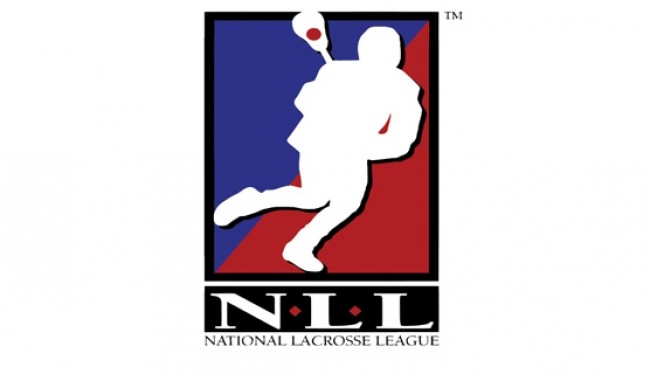
The National Lacrosse League has implemented a new standardized concussion testing protocol for its players to be used by medical personnel at all NLL games. At any time during the season, any player suspected of having incurred a concussion in a game or practice will be given immediate concussion testing by appropriate personnel.
In addition to implementing these new standards during games and practices, all NLL players will undergo baseline testing for concussions prior to the start of each upcoming season. The new standardized testing was developed by the team physicians of the NLL clubs. The concussion protocol is part of the NLL’s commitment to player health and safety.
The league has also taken further steps by stiffening the penalties assessed for incidents of high-sticking (Rule 62) and illegal cross-checking (Rule 63). Penalties for high-sticking will now be assessed by the game officials as either a major penalty (five minute penalty) or a match penalty. A match penalty ejects the offending player from the game AND a one-game suspension for the team’s next game. The offending player’s team is also assessed with a five-minute major penalty. The penalty assessed will be based on the severity of the incident as judged by the game officials. High-sticking infractions may no longer be assessed by officials as a major & game misconduct (five-minute penalty plus ejection of offending player for remainder of game).
“The Competition Committee felt that by removing the middle classification of major & game misconduct penalty for high-sticking, we will create a greater deterrent for players from making contact on opponents with a high stick”, said Brian Lemon, NLL Vice President, Operations. “Player safety is of the utmost concern to us, and the NLL will remain at the forefront of protecting its players.”
The league has also applied this change to the penalties that can be assessed for illegal cross-checking. The officials also have the option of selecting a minor penalty for illegal cross-checking for incidents deemed less severe. High-sticking penalties cannot be assessed as a minor.
Any player who is assessed a second match penalty for either of these infractions during the course of a year will receive a 2-game suspension. A third infraction would result in a three-game suspension. The year in this case begins on the date when the first infraction takes place and continues for twelve months from that date.
Rule changes have also been applied in terms of the penalties assessed by game officials for fighting. When a fight between two players leads to a stoppage of play, players who engage in a second fight during the stoppage (fighting after the original fight) will be assessed a match penalty (ejection from game plus a one-game suspension). This infraction was previously assessed as a game misconduct penalty. Officials will have the ability to rescind the penalty for one of the involved players if they determine that player was an ‘Unwilling Combatant’ who is defending themselves against the instigator as opposed to fully engaging in the fight.
Also during a fight, NLL rules dictate that all runners on the floor return to their team benches, or to their team’s defensive end of the floor if the fight is happening in front of their team’s bench. Any player failing to adhere to this rule during a fight will now be assessed a misconduct penalty. This infraction was previously assessed a bench minor penalty.
Players who fight after the 2nd and 4th quarters of a game (during halftime or after the end of regulation) will be subject to penalties under Rule 80.16, Fighting Other than During Periods of a Game, and subject to a game misconduct and a one-game suspension. This infraction was previously assessed as a major penalty.